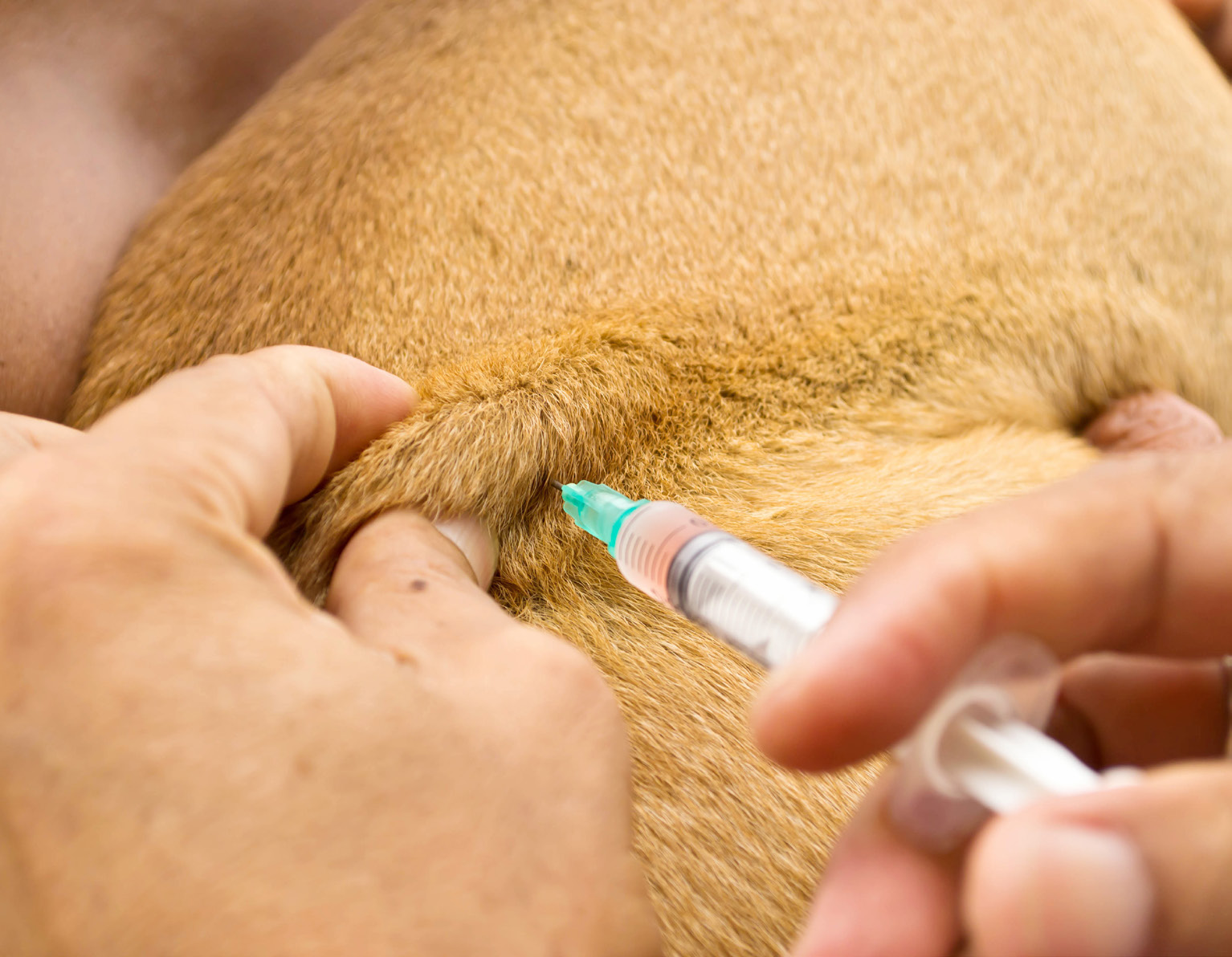These are the comprehensive guidelines for the control of rabies, as prepared by the World Health Organization, which include the following:
- Notification (of the relevant authorities) about suspected cases, and destruction of dogs with clinical signs (of the disease) and dogs bitten by a suspected rabid animal;
- Reduction of contact rates between susceptible dogs with the use of leash laws, dog movement control, and quarantine;
- Mass immunization of dogs through campaigns and the continuing vaccination of young dogs with enforced, verifiable house-to-house records, which will show the number of pets and the date these pets were vaccinated—in other words, proof of the compliance of the owner with veterinary practices;
- Stray dog control and destruction of unvaccinated dogs with low levels of dependency on (strays), or restriction by, man; and
- Dog registration.

There are several other steps necessary to help with rabies control as a corollary to the guidelines stated above. This includes the listing of all locally available approved rabies vaccines and their classification, whether modified live or inactivated. The recommended vaccination frequency is yearly here in the Philippines, regardless of whether the manufacturer’s claims state otherwise. Due to the increasing number of cases of rabies seen in cats, vaccination should be mandatory as it is 100% preventable.
On the other hand, there is no vaccine approved for use on wildlife kept as pets, and protective immunity from the commercially available vaccines has not been demonstrated in these species. In Europe and Canada, the use of oral vaccines distributed in baits to control fox rabies is widespread and effective. The disease has now been eradicated from Switzerland and curtailed in Ontario and in several western European countries.
Use of a vaccinia rabies glycoprotein recombinant vaccine is being investigated for use among wildlife (raccoon and coyote) rabies in North America and to assist in the control of dog rabies in developing countries.
Despite government efforts to control rabies, there still is a lot of backlog. The reason for this is because the abovementioned WHO regulations are not in place or are only half-heartedly implemented. Whereas the law is clear concerning animal welfare, the proliferation of dogs and cats that are obviously in a state of neglect increases by the day.

I shudder to hear owners who proudly profess their love for animals only to see these same animals paraded in the neighborhood with a discomfiting, mangy appearance. How pitiful. This indifference to animal welfare greatly contributes to the spread of rabies. Animals need our care and protection. After all, they love us unconditionally.
Have you ever accidentally kicked your dog? It screams, howls, and makes all sorts of vocal protests in small yelps and barks. But, still, it comes back to you ready to lap even the soles of your feet. They cannot speak for themselves; their feelings, however, can be seen in the way they greet us each morning as we wake up. The bond between man and beast goes way back, even before written history. It would not be surprising to me if the bond between man and dog is as old.
Many may be surprised to know that it has been documented that dogs are known for their courage in defending its human masters. Some dogs have even died of rabies just defending their master’s livestock against rabid wildlife. I can go on and on extolling the loyalty of dogs to their masters. There are no lingering doubts in my mind concerning the oft-quoted phrase concerning the dog being man’s best friend. However, I would be cynical about man being the dog’s best friend.
This appeared in Animal Scene’s October 2016 issue.






